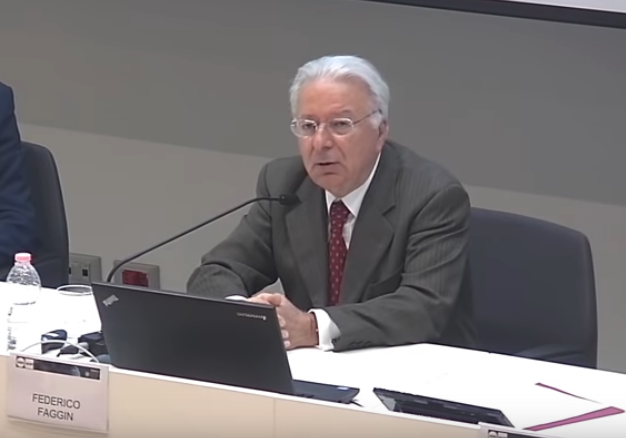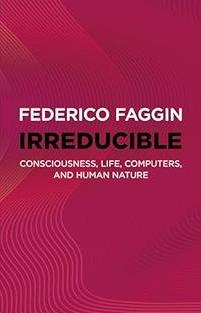|
home | what's new | other sites | contact | about |
||||||||||
|
Word Gems exploring self-realization, sacred personhood, and full humanity
Lucid Dreaming, Lucid Living
Sleeping Women, Zaineb Shaban of Canada
Silver Birch: "The whole purpose of earthly life is to awaken the dormant slumbering souls to the reality of their existence. Your world is full of living sleepwalkers who go through the day’s activities in a dream."
what's the real problem with living in a dream The big problem is - none of it is real. Think of a recent dream. Maybe it was unpleasant. There might have been a situation of being threatened or a lack of resources or not enough time, and, try as one might, nothing could make things work. However, in what’s called “lucid dreaming,” one can tell oneself, “this isn’t real, I’m ok here, it’s just an illusion.” But lucid dreams are not easy to arrange. When they don’t happen, troublesome dreams can leave us feeling nauseous, some imbalance of energies. The nocturnal assault seemed very real, and we're left with an upset stomach to prove it. so, the problem is, none of it is real, but it all feels very real When I first heard of "mortal life as dreamwork", it didn't make total sense to me. For one thing, a familiar table has hard edges, and I know I’m not dreaming. Everything around me is pretty solid and no ethereal dream. Maybe, I thought, what they mean is that the table is 99.999% empty space, with the atoms so wispy. Electrical force-fields create an illusion of hardness. This is true, but, then I thought, does this really matter to my spiritual state? Many of the New Age writings concerning this world as dreamland try to say that “separateness is illusion”, that we’re really “all one,” all connected via Universal Consciousness. This, too, is correct; however, once again, I found this explanation to be less than fully satisfying. I can accept those precepts while maintaining a position that the world around me is no dream. Further, though we're all connected, the fact remains that the world is filled with ego-maniacs, and they would hurt you, or kill you, if they had the chance. This is not a pink-cloud dream, but a hard lesson of history – something very real. Editor’s note: There are many other comparisons that have been made between the nightly dream state and what we experience every day. For example, it’s said that in a dream we seem to be one among many; but there’s only one dreamer, and we ourselves constitute the psychic force of each person in the dream. The analogy here, it is said, suggests that in our normal lives we share a connection with all others. Or this idea: when we’re dreaming, we believe that we’re inside the dream, but, in reality, the dream exists within us, within one’s own consciousness. The analogue is that all of us, and the whole world, exist within Universal Consciousness, even though the illusion leads us to believe that Consciousness exists the world. All of these ideas have some merit and can be valuable to overall perspective. Even so, I do not sense that these insights constitute the “whole purpose” for our coming to the Earth. what is it exactly that we're meant to wake up to; what is so important as to define our very purpose in coming here I don’t think it has to do with the table as 99.999% empty space; nor that “we’re all connected” or “we all exist within consciousness” - I don't think any of this is so vital to know that we should make a 70-year trip here to live in Earth’s sorrows. We could learn these things in a quick science seminar in Summerland. what concept, or cluster of related concepts, might be so vital as to constitute a deep undergirding basis of one’s entire cognitive framework; a prism, a filter, through which one makes sense of the entire world and all of life In the “metaparadigm” article, we discussed how it becomes one's overarching assessment encompassing all aspects of reality, including its nature, meaning, and purpose. a total cosmic vision of reality A metaparadigm is a total cosmic vision of the universe and life itself. It gives marching orders to an array of sub-paradigms. It is the emotional-intellectual lynchpin, the cornerstone, the master blueprint, lending significance to, distilling, holding together, all that one knows, all that one believes oneself to be. This doesn't mean that one's metaparadigm is necessarily accurate: the judge may be in error, but never in doubt. What is this thing called life? What does it mean to be human? Does the universe have a purpose? Is there a future for us? And now we’ve entered a realm of thought debated for thousands of years by philosophers, saints, and mystics. Materialistic science, however, assures us that all is purposeless. Yuval Noah Harari explores nihilism in his books “Sapens” and “Homo Deus”: ”The universe has no meaning, and human feelings too are not part of a great cosmic tale. They are ephemeral vibrations, appearing and disappearing for no particular purpose. That’s the truth. Get over it… Take away human feelings, and you are left with a bunch of molecules… Any meaning that people ascribe to their lives is just a delusion… the most real thing in the world is suffering.” But others would disagree. C.S. Lewis: 'If the whole universe has no meaning, we should never have found out that it has no meaning: just as, if there were no light in the universe and therefore no creatures with eyes, we should never know it was dark. Dark would be without meaning.' What a profound response by Lewis. It’s sort of like saying, a fish doesn’t know it’s in water – it’s all too natural. But if the fish is taken out of the water, then it will know that something is very different. So it is with us with queries about meaning and purpose. We’re not in our natural home-world right now, and so “meaning and purpose” can appear to be in question. But the fact that we’re prompted to notice the difference would suggest, I think, that our normal state is one of inhabiting meaning and purpose; or, as Adrian commented, "The fact that we are here to pronounce upon meaning says there is meaning." But, what is it exactly that we are to wake-up to – which critical absence of awareness is likened to living in an unreal dreamworld? I like Lewis’ answer. And there are a great many answers, with libraries filled with books containing truth-seekers' meditations on the big questions of life. Are we merely the product of random chance, a haphazard collection of directionless molecules? See the “evolution” page for more discussion. However, there is much evidence to indicate that the universe is guided by meaning and purpose. Editor’s note: So much so that it finally convinced the world’s most famous intellectual atheist, Antony Flew. waking up from the ego's dream is related to how we see ourselves I would say that the core answer, relating to metaparadigm, has to do with how we perceive ourselves as human beings. And, again, there could be many aspects of this primary tenet, but one I might choose to highlight comes from The Gospel Of Thomas. Editor’s note: Allow me to once more recommend the article on the two gospels, Thomas and John. It is an incredible story of little known history. The objective reviewer, if religious, might suffer a paradigm shift in the reading. Non-canonical scholar, Dr. Willis Barnestone, informs us that Thomas pre-dates the New Testament gospels. As such, we find therein an earlier view of Christianity. Editor's note: My interest in Thomas does not mean that I view this document as a new "infallible Bible." There is no such thing. Our conceptions of God and reality are always incomplete. But what it means is this: the ancient Gnostics, who authored these documents, were on the right path. "Gnostic" means "to know," and their knowledge had to do with "knowing the self." The following is an excerpt from a closely related work, The Book Of Thomas: “[Jesus said] Since you are my twin and my true companion, examine yourself, and learn who you are… Since you will be called my [twin] … although you do not understand it yet … you will be called 'the one who knows himself.' For whoever has not known himself knows nothing, but whoever has known himself has simultaneously come to know the depth of all things.” Just a word addressing context. In both the Gospel and Book bearing the name of the apostle Thomas, we find Jesus speaking of “twins.” It’s a beautiful concept. The name “Thomas” means “twin.” And the idea of twinship is introduced to augment the principle, as the Jesus in those writings asserts, that Thomas will become like Jesus, and Jesus will become like Thomas. In other words, spiritually speaking, they will become as identical twins – meaning, each of them will have gone through the same introspective process of aligning the self with Source. 'the one who knows himself' But here is the salient feature of this segment: "...you will be called 'the one who knows himself.' For whoever has not known himself knows nothing, but whoever has known himself has simultaneously come to know the depth of all things.” Also, compare this with earlier statements by Jesus in the Gospel: Jesus said... "The kingdom is inside of you, and it is outside of you. When you become acquainted with yourselves, then you will be recognized [by yourselves that you are of God]. And you will understand that it is you who are children of the living father. But if you do not become acquainted with yourselves, then you are in poverty, and it is you who are the poverty." Jesus said, "If you bring forth what is within you, what you have will save you. If you do not have that within you, what you do not have within you [will] kill you." Does not Jesus say, "Whoever finds himself [that is, the true self, the light within] is superior to [is worth more than] the world?" according to these ancient teachers, those who ‘go within’ to find the ‘true self’ are worth more than the whole world; those who have discovered the ‘true self’ are not only linked to God but are now in possession of a key to begin to understand all things Is this hyperbole, much overstatement? I would say it’s accurate. How can we know this is true? ‘Go within' and you yourself will become the evidence that it’s true. the endless nightmare, the interminable waking-dream, finally comes to a close Talk to most anyone. It won’t be long before they reveal a self-image: I am the one who does not have enough. I am the one who is not enough. I am the one who suffered great loss and now there is no hope. I am the one who will never find happiness. I am the one who will never find real love. I am the one with emptiness within. I am the one who is afraid of a barren future. I am the one haunted by an unforgiving past. I am the one living in a harsh universe of scarcity. I am the one who must live the 'law of the jungle,' each for his own. I am the one who sees meaninglessness in all of life. I am the one who sees no greater good, no beneficent hand. I am the one who is utterly alone. as the false self views it, the ultimate loss is death, but this too is illusion We might say that death is the greatest nightmare. Many believe that it's the final loss of everything. But, as we’ve discussed on a thousand WG pages, there is no such thing as death. No one has ever died. All who've ever lived throughout history continue to do so in other worlds. Father Benson made this comment. in collective delusion, mankind has invented death Someone said, “man has invented death.” Now that’s an interesting way of putting it. Only the mortal body dies, not the essential person. And it’s a terrible distortion of reality to say that humans die. No one has ever died, but it’s only fevered dreams of materialistic minds which entertain such view. But, as with all nightmares, none of it is real. And we need to wake up and escape the dystopia. we are to 'live from the true self', not from engendered fears of a nightmare world Have you ever awakened in the morning from a really bad dream and couldn't wait to turn on the lights or open the curtains - just to get away from bad feelings and images? with thankfulness that it's not real?
We must learn to access what The Gospel Of Thomas calls “the light within”. It is the light of the true self which dispels the darkness of nightmares.
postscript After the completion of the above, I was watching a couple of youtube videos on the “history of the Byzantine Empire” (330-1453) and the “history of the Ottoman Empire” (1299-1922). After nearly three hours of this, I felt overwhelmed by the mindless futility of it all. See these maps of each empire near its peak of power:
As we can see, there was much overlap of land-holdings during the two empires’ 1600 year tenure. And, at the end, in 1922, the Ottoman Empire suffered total collapse and disappeared. Both realms had now completely vanished from the face of the Earth. But, concerning a more intense sense of futility, I might recommend watching some of these videos. It doesn’t matter where you start, in either of them, it’s all the same: the frenzy for more Some warlord decides to expand his domain, and knocks off his neighbors. This seemed to go well, and so it was tried again; and a few more times. However, as land-holdings swelled, it became harder to permanently subdue every town and county in the empire. Imperial overreach, spreading oneself too thin, encouraged rebellions to arise. It's really hard to control everything, everywhere. The once-forward marching troops had to be recalled to quell insurrections at home; unfortunately, this encouraged more rebellions among those who had been conquered good and proper. With governors on leave from the newly-acquired hinterlands, these uppity sought their freedom. In the midst of this to-and-fro, this frenzy for "more," warlords would sometimes display the inconvenient habit of dying; either of disease, but, more likely, by an enemy sword, or even by assassination from within the royal family. To circumvent the possibility of the latter, as one cannot be too careful about these things, brothers were routinely slaughtered as suspects in a future palace coup. And, not infrequently, upon the demise of said warlord, the heir-apparent might be a child. In such case, the mom would often rule in his stead during inter-regnum. This appealed to mothers, sometimes, too much, and it was not so uncommon for dear mother to have her minority-aged son killed, thereby allowing her to reign the longer. This back-and-forth, this ebb-and-flow, of warlord suffering demise, with ensuing frantic scramble for throne’s power, went on and on and on for many centuries. It seemed that little else occurred. During the brief blood-stained rulership of each, land was gained, land was lost, land was gained, land was lost. And, at curtain-fall, all was lost. the endless nightmare: 'I must have more' Again, at the dreary completion of this sordid survey, one is overwhelmed by the futility of it all. It’s as if no one had any thought in his head other than “I must expand the empire” and “I must retain control at all costs.” For these hapless and deranged, it is entirely clear that the endless nightmare of this world centered about “I must have more.” However, we need not look to these insane as exclusive holders of such sentiment. It's everywhere! - even, as close as the image in our mirrors. What we do with this impulse determines our destiny.
Dr. Federico Faggin says that lucid dreaming might help us perceive a hidden, vaster reality.
In his book Irreducible, pgs. 279-80, Dr. Faggin states that one of the purposes of physical life is to understand the “distortions” of consciousness. Evil does not exist as a fundamental reality, he says, but is merely a distortion of reality. (See more discussion on this elusive nature of evil.) What is needed, he says, is a “purification process” to align our minds with reality and not illusion. The sufferings encountered on planet Earth are like a “simulator” in which we, during our mortal lives, experience the ineffectiveness of the evil path. The resultant trauma can “dissolve our distortions” in the college of hard knocks. (See discussion on the “evolution” page concerning this life as a “flight simulator.”) During our Earth time, we are allowed to enter into forms of evil, which serve as an “amplification of distortions.” This “makes [the errors] visible through the consequences they cause within human society.” The ensuing suffering has the potential to “open one's eyes” to a greater wisdom. But this path to enlightenment is also provided, Faggin says, by “a particularly vivid lucid dream.” Further, a portal may open “through some extraordinary experiences of consciousness” – also known as mystical experiences. All these may yet open a door to a “vaster reality” currently hidden from the masses of humanity.
|
||||||||||
|
|










